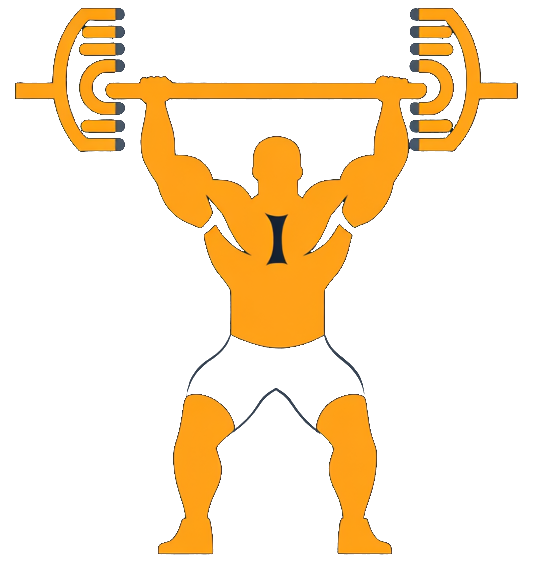To excel at CrossFit, a well-rounded diet is essential. This serves as your fuel, helping you enhance performance, build strength, and recover effectively. Understanding the key components of a nutritious diet tailored for CrossFit can help you achieve your fitness goals more efficiently. Opting for whole foods that fuel your body with the right nutrients forms the foundation of your dietary approach.
Moreover, learning about macronutrients—proteins, fats, and carbohydrates—alongside micronutrients, vitamins, and minerals, can greatly contribute to your progress. Balancing these elements ensures you’re getting the energy needed for intense workouts and the recovery time necessary to prepare for the next challenge. This overview will guide you through the essential dietary choices you should consider as you embark on your CrossFit journey.
Understanding Macronutrients for CrossFit
Proteins: The Building Blocks
Proteins are vital for muscle recovery and growth after intense CrossFit sessions. They contribute to repairing muscle fibers that get stressed during workouts. Lean meats, fish, eggs, dairy products, legumes, and plant-based proteins are excellent sources. Aim for about 1.2 to 2.0 grams of protein per kilogram of body weight, depending on your training intensity and goals. Incorporating protein-rich foods in every meal can help ensure you’re meeting your nutritional needs.
Carbohydrates: Your Energy Source
Carbohydrates provide the energy needed for high-intensity workouts. Foods like whole grains, fruits, and vegetables are key to replenishing glycogen stores and ensuring you have enough energy for both training sessions and recovery. While focusing on the quantity, prioritize complex carbohydrates that release energy gradually rather than simple sugars that spike energy levels temporarily followed by crashes.
Fats: Essential for Recovery
Healthy fats support overall health, hormone production, and provide sustained energy. Sources like avocados, nuts, seeds, and olive oil should be included in your diet. Fat serves an important role in protecting your joints and promoting heart health. Striking a balance between fats and carbohydrates while maintaining adequate protein intake is crucial for optimal performance.
Micronutrients: The Unsung Heroes
Vitamins and minerals, though required in smaller amounts than macronutrients, are equally important. They play critical roles in various bodily functions, including immune response and energy production. Dark leafy greens, colorful fruits, and lean proteins provide a plethora of micronutrients. Ensuring a colorful plate is an easy way to cover your bases.
Hydration: The Often Overlooked Aspect
Staying hydrated cannot be underestimated. Water plays a vital role in digestion, nutrient absorption, and muscle function. Aim to drink enough water throughout the day, and consider electrolyte-replenishing drinks if you engage in particularly long or intense workouts. Keeping a water bottle nearby can serve as a constant reminder to hydrate while you train or work out.
When to Eat: Timing Your Meals

Pre-Workout Nutrition
What you eat before training can significantly influence your performance. Consuming a balanced meal with carbs and protein around two to three hours before a workout can help maximize results. If you’re short on time, a quick snack 30 minutes prior that includes simple carbs can also help. Monitor how your body responds to different food timings to adapt your routine accordingly.
Post-Workout Nutrition
After an intense workout, replenishing your body with nutrients is paramount. Aim for a mix of protein and carbohydrates to aid recovery and muscle synthesis. Chocolate milk is a popular option, but also consider smoothies or protein shakes that can quickly provide these nutrients. Additionally, incorporating a wider range of meals within a few hours post-exercise can ensure complete recovery.
Understanding Your Individual Needs
Each athlete’s nutritional needs can differ based on body composition, training volume, and health goals. Consulting with a sports dietitian can provide personalized plans tailored to your specific requirements. Conducting periodic assessments and adjusting your meal plans can help ensure optimal performance and health.
Common Dietary Approaches for CrossFit
The Paleo Diet
This diet emphasizes whole foods, limiting grains and processed foods. It can help fuel workouts effectively; however, it’s important to ensure you’re still getting all essential nutrients. Engaging with various food options while adhering to the principles of this diet can help maintain balance.
The Zone Diet
Focusing on a precise ratio of macronutrients, the Zone Diet encompasses 40% carbs, 30% protein, and 30% fats. This structure can be beneficial for performance-focused individuals, but proper tracking and meal preparation are crucial to ensure adherence.
Vegetarian and Vegan Approaches
It’s entirely possible to thrive on a plant-based diet while engaging in CrossFit. Ensuring ample protein sources from beans, lentils, tofu, and seitan coupled with complex carbs is essential. Monitoring nutrient intake for deficiencies such as Vitamin B12, Iron, or Omega-3 fatty acids becomes crucial if you choose this lifestyle.
Flexible Dieting (IIFYM)
This approach allows for a wider variety of foods as long as you meet specific macronutrient targets. If you’re disciplined, it can work exceptionally well. However, self-control becomes vital when it comes to improving performance, as focusing solely on hitting numbers can overlook nutritional quality.
Adjusting Your Diet for Goals

Weight Loss and Body Composition
If your goal is weight loss while preserving muscle mass, create a slight caloric deficit while ensuring sufficient protein intake. Tracking intake can help maintain accountability. Techniques like intermittent fasting can aid in managing overall food intake without severely limiting choices.
Building Muscle and Strength
Building muscle requires a caloric surplus. Ensuring adequate protein and carbohydrate intake around workouts reinforces muscle gains. Combining workouts focusing on resistance training with a balanced diet rich in nutrients supports this goal.
Gaining Endurance
For endurance-focused training, adjust carbohydrate intake as necessary to support prolonged energy levels. You may need to incorporate more easily digestible carbs during longer sessions. Experimenting with sports gels, bars, or other quick sources can help during intense workouts.
Wrapping Up Your Nutrition Journey
Keeping a Food Journal
Tracking your food intake can lead to better awareness of eating habits, helping you stay focused on your nutritional goals. You can note how different foods affect performance, allowing for adjustments when needed.
Adjusting and Adapting
As life changes and your fitness journey unfolds, it’s essential to adjust your dietary approach. Stay open to experimenting with new foods and nutritional strategies that align with your goals.
